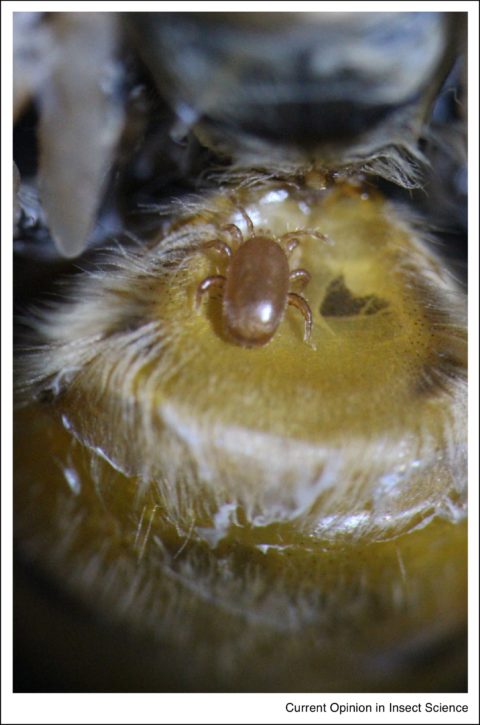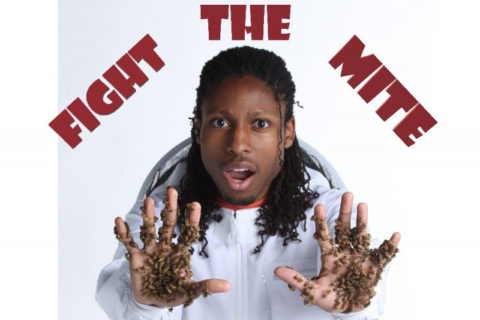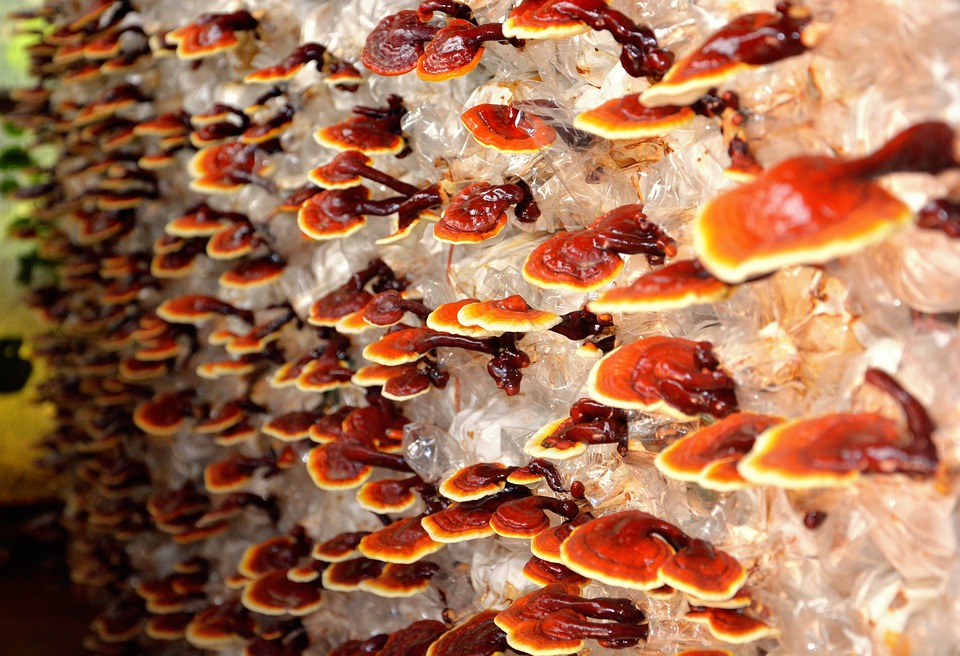Category: Varroa – testing and treatment
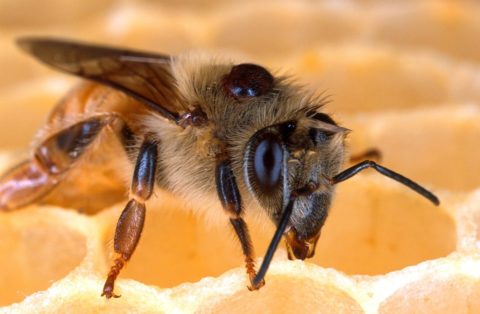
Fighting Varroa Takes Guts
It takes guts to fight Varroa. Do honey bees have what it takes to do it?
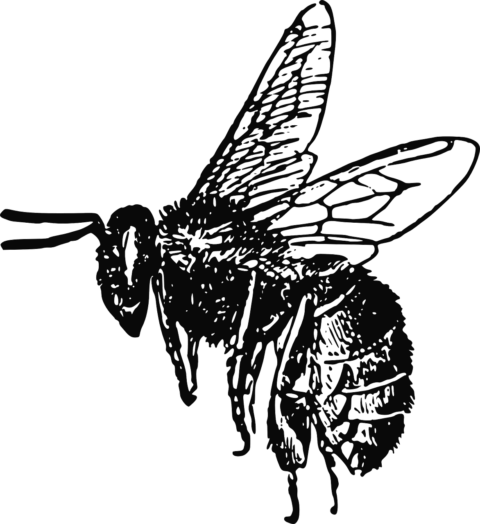
What’s Killing Honeybees & What We Can Do About It
The plight of the honeybee is real. The statistics are grim. Dr. Jamie Ellis takes a deeper look at what’s killing bees and what we can do about it.

Know Your Numbers
Have you checked for Varroa yet? If not, you should…like right now. In this article we discuss the latest research being done to help understand and control Varroa.
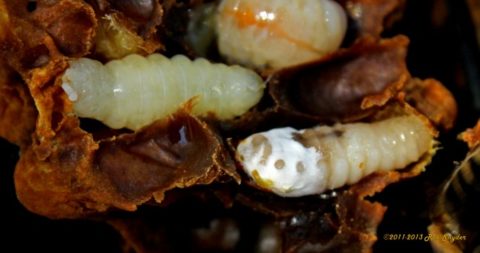
New Research Suggests Probiotics May Treat and Prevent Chalkbrood
Dr Murali Nayudu is an Adjunct Associate Professor with the Faculty of Science & Technology at the University of Canberra in Australia. He has spent more than a decade investigating the microbiome of honey bees. Since October 2018, Dr Nayudu has collected monthly gut bacteria samples from honey bee colonies in order to understand what the normal diversity and concentration of gut bacteria should be. He plans on using this information to help identify and treat diseased hives.
Tropilaelaps mite: A Fate Worse than Varroa
Dr. Ramsey fundamentally changed our understanding of Varroa mites in his most recent publication Varroa destructor feeds primarily on honey bee fat body tissue and not hemolymph. He has since uncovered a pest potentially more dangerous than Varroa – Tropilaelaps.
Dr. Ramsey Fundamentally Changes Our Understanding of Varroa destructor Mites
Much of the knowledge about Varroa was derived from closely related parasitic and predatory mites. Assumption that Varroa mites were blood-sucking was propagated by “chain citing” an English-language study referring to rudimentary Russian-language Varroa publications. However, there are some important differences that prompted Dr. Ramsey to investigate this assumption and conclude that Varroa destructor feeds primarily on honey bee fat tissue and not hemolymph.
Antiviral Properties of Mushroom Extracts
Researchers and Oregon based company, Fungi Perfecti, test the anti-viral effects of mushroom extracts in honey bees.
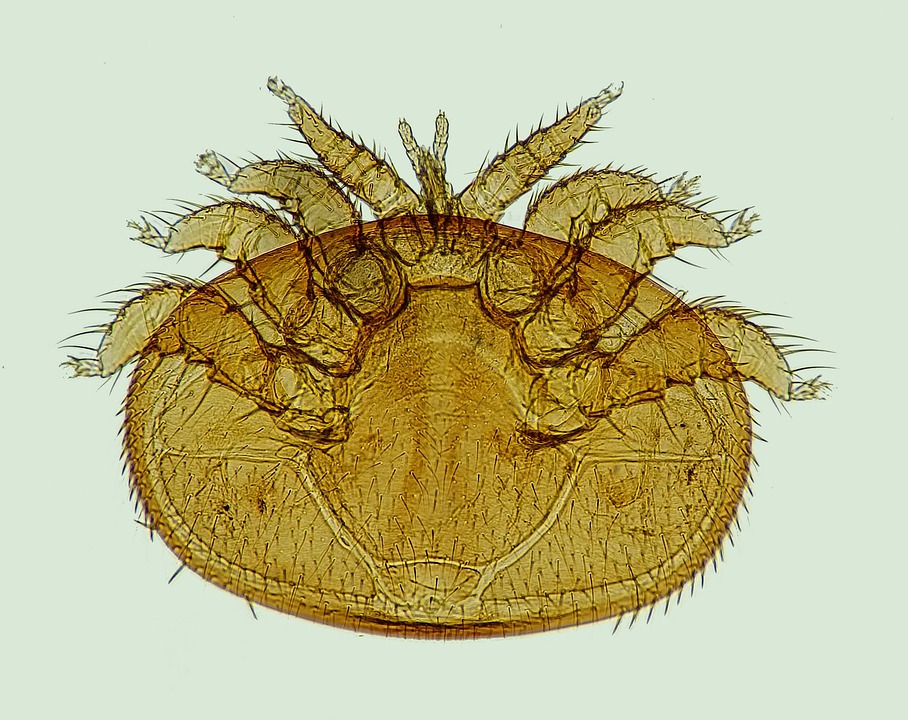
Rearing Varroa in the Lab
Studying host-parasitic interactions in laboratory setting provides opportunities to delve deeper into the behavior and physiology of the honey bee parasite – Varroa destructor mites.
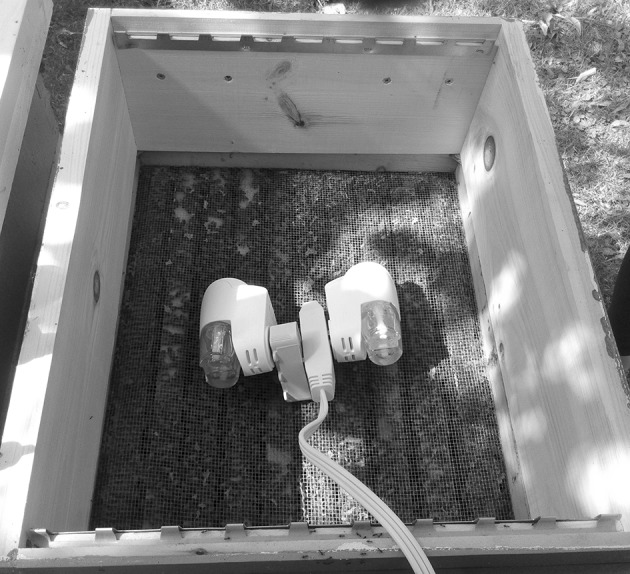
Varroa Mite Control Using Oregano Oil Vapors
Electric vaporizers containing oregano oil installed above the brood chamber of honey bee colonies and running continuously, achieved 97-98% mite killing rates…
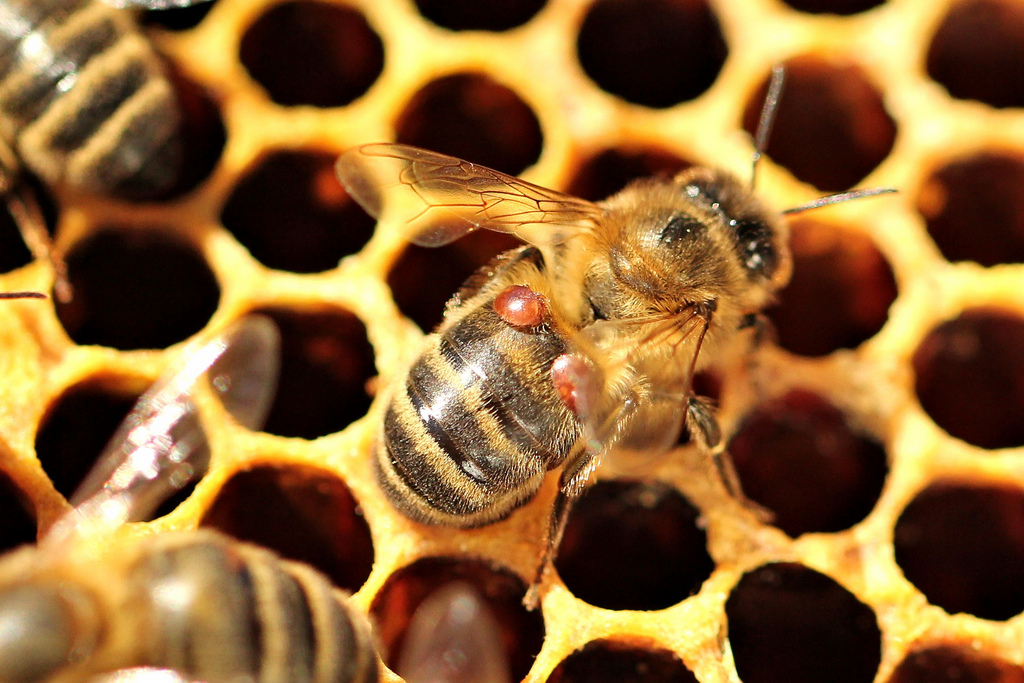
Varroa destructor – Test & Treat
Testing and treating your bees for Varroa destructor mites before going into winter is imperative for hive survival. Learn tips and tricks to help your bees stay healthy and overwinter with success.

